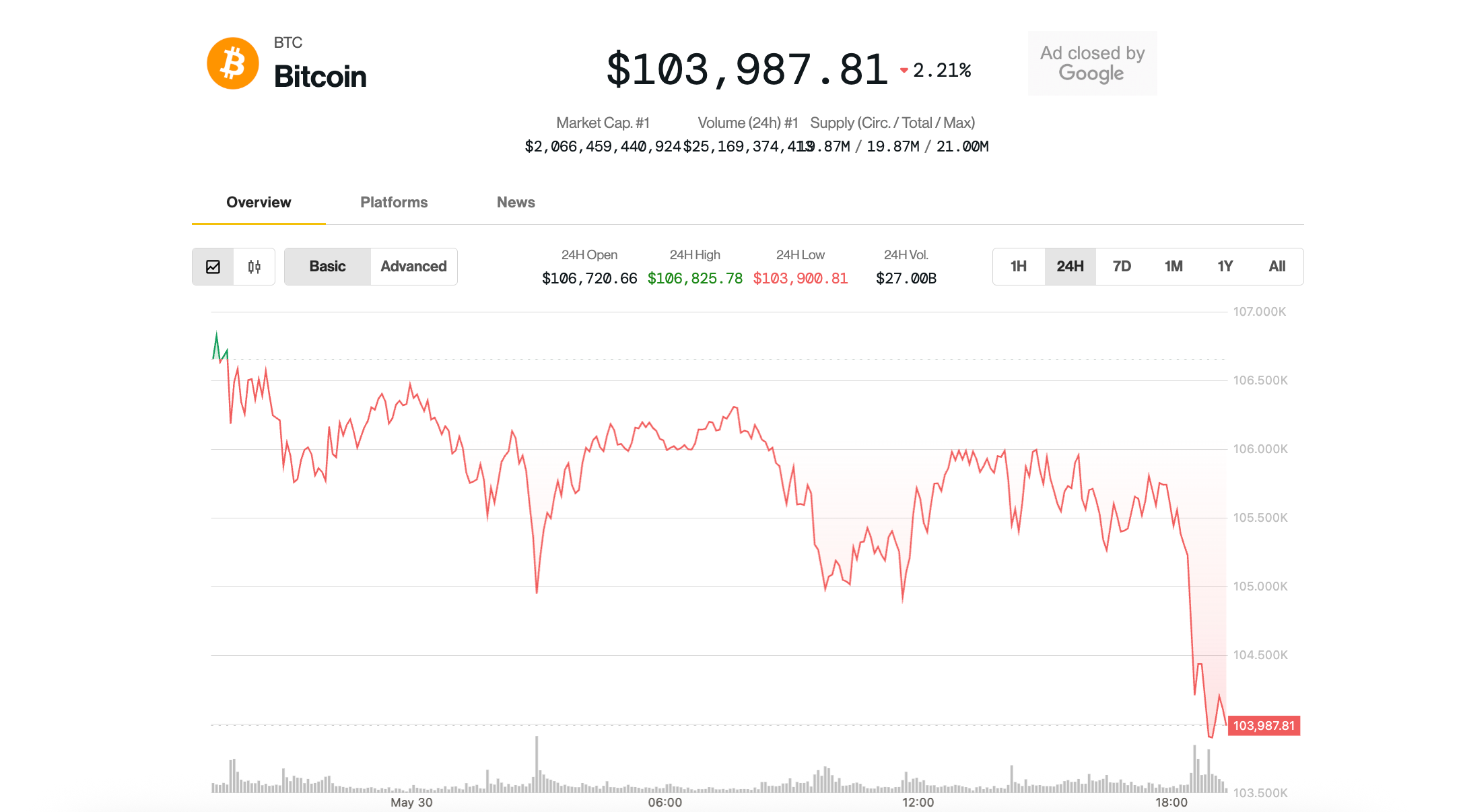

In Brief
Web3 game development revolutionizes gaming by enabling seamless trading of in-game assets, turning them into real-world currency, and overcoming initial challenges like limited availability and user interface issues.

Imagine playing a game where participants can easily trade in-game assets with others seamlessly and even play to earn from Web3 games. Web3 game development has reshaped the economic landscape of the industry by enabling gamers to buy and sell in-game assets across various platforms, turning them into real-world currency.
Originally, the first era of Web3 games faced different challenges, including limited availability on mainstream platforms like Google Play and Apple App Store. Many early Web3 games weren’t designed with mobile gaming in mind and were not intuitive for participants who are unfamiliar with blockchain.
Typically, these games required cryptocurrency wallets and adopted a pay-to-play model that contradicted the initial “free-to-play” trend that had gained widespread popularity. As a result, early Web3 games felt niche and closed off, limiting mass adoption.
However, we are now unlocking the true potential of Web3. Recent advancements in coding, improved data transfer and storage, and heightened transparency and security within gaming environments are transforming the landscape.
Unlike Web2, where user data is collected and stored on centralized servers owned by companies, Web3 leverages the blockchain’s ledger to record all transactions and asset ownership. This revolutionary shift in Web3 gaming moves control to players, giving them greater power in the ecosystem, leading us to an important aspect of Web3’s impact: democratizing game access.
Web3 is Democratizing Game Access
In order to democratize game access, Web3 games have reduced entry barriers by enabling players to start with minimal investment and potentially earn money from their participation. This represents a significant shift from traditional pay-to-play models, where upfront costs could deter many players.
They are able to earn money through Web3 games, which is particularly beneficial for players from economically disadvantaged regions, enabling wider participation in gaming development.
Understanding gaming practices is crucial in this transition. In Web2, the concept of first-time user experience (FTUE) was essential. Players are typically drawn to a game based on advertisements, its intellectual property, or engaging mechanics. This initial interest gets them “one foot in the door.” However, to fully engage and put their “second foot in,” the entry barriers must be minimal.
The biggest challenge in Web3 is expecting players to perform complex actions without proper onboarding or understanding of blockchain technology. When we leverage FTUE insights and create a smoother transition from Web2 to Web3, there’s about a 50% conversion rate of existing Web2 players to Web3.
Beyond making gaming more accessible, Web3 technologies also enhance how games interact with each other.
Harnessing Interoperability in Web3 Gaming
Consider this: you’ve obtained a unique cosmetic outfit in your favorite battle royale game, which you could use to style your avatar in a virtual social platform or unlock special advantages in a connected role-playing game. Doesn’t that excite you?
In the realm of Web3, assets are often interoperable, meaning a player’s efforts and investments are recognized across various platforms and games. To put it simply, players can transfer items or achievements from one game to another, so what we’re seeing is a more connected and expansive gaming universe.
As a result, players experience a sense of community and collaboration, as they can interact and share resources across various games, promoting a more cohesive and interconnected gaming experience.
However, the advantages of interoperability extend beyond players, and developers also reap significant benefits. The ability to read blockchain data offers a unique opportunity to enhance player acquisition strategies. Developers can identify high-value players, often referred to as “whales,” and tailor incentives based on their on-chain activities.
For instance, if a player purchases a particular outfit in their favorite battle royale game, developers can recognize this preference and offer similar or complementary items in a new game, fostering deeper engagement.
This targeted approach allows developers to engage players more efficiently, reducing user acquisition costs while ensuring incentives are directly aligned with what players value most. By leveraging insights from players’ interactions across multiple games, developers can create more personalized experiences, driving player retention and satisfaction. This sets the stage for innovative gaming formats, one of which is “phygital” gaming.
The Rise of Innovative Gaming Experiences
Phygital gaming experiences offer more immersive and captivating experiences that appeal to a larger audience. Players can interact with one another in real life at live events, tournaments, and community gatherings. This allows them to build friendships and create a sense of community that extends beyond the virtual world. The gaming experience can be greatly improved by this social component, which will make it more fulfilling and pleasurable.
Moreover, phygital gaming creates new revenue streams for event organizers and developers. They can attract more audiences, including gamers and fans of live events, by developing hybrid experiences that combine esports competitions with live entertainment. This targeted approach leads to increased ticket sales, sponsorship opportunities, and merchandise sales that would further drive the growth of the gaming industry.
A real-world case study of this is partnership with the phygital entertainment festival Open World Now (OWN) Valencia 2024 for Web3 gaming in July 2024. This cooperation exemplifies the potential of phygital gaming by combining esports competitions with live entertainment and interactive experiences.
The Expanding Universe of Web3 Gaming
As phygital experiences continue to blur the distinctions between digital and physical gameplay, they signal broader trends influencing the future of the gaming industry. The gaming environment now values transparency, fairness, and shared success, ensuring that every player is a stakeholder contributing to the future of gaming.
Web3 play-to-earn games introduce an innovative monetization model that aligns the goals of both developers and players. The growing attention and capital invested in Web3 games, crypto games, and the metaverse point to their important role in the future of gaming. As Web3 continues to advance, the gaming industry will become more integrated and dynamic, with players at the center of the ecosystem.
The full promise of Web3 lies in making gaming accessible, user-friendly, and inclusive. Everyone has the chance to participate, which entails streamlining the onboarding procedures and giving newcomers clear guidance. Web3 gaming should be welcoming to everyone, not just those already versed in blockchain technology.
Disclaimer
In line with the Trust Project guidelines, please note that the information provided on this page is not intended to be and should not be interpreted as legal, tax, investment, financial, or any other form of advice. It is important to only invest what you can afford to lose and to seek independent financial advice if you have any doubts. For further information, we suggest referring to the terms and conditions as well as the help and support pages provided by the issuer or advertiser. MetaversePost is committed to accurate, unbiased reporting, but market conditions are subject to change without notice.
About The Author
Christina Macedo, the CEO and Founder of PLAY, has a strong background in tech leadership, law, and technology. Her professional expertise includes integrating blockchain into gaming to expand access to game development and enhance player engagement. Christina frequently writes about Web3 technologies, emphasizing their potential to shape the future of gaming. She is also actively involved in discussions about decentralizing gaming ecosystems and the global impact of Web3 on mobile gaming dynamics, sharing her insights through various speaking engagements at international conferences.


Christina Macedo, the CEO and Founder of PLAY, has a strong background in tech leadership, law, and technology. Her professional expertise includes integrating blockchain into gaming to expand access to game development and enhance player engagement. Christina frequently writes about Web3 technologies, emphasizing their potential to shape the future of gaming. She is also actively involved in discussions about decentralizing gaming ecosystems and the global impact of Web3 on mobile gaming dynamics, sharing her insights through various speaking engagements at international conferences.
Read More: mpost.io









 Bitcoin
Bitcoin  Ethereum
Ethereum  Tether
Tether  XRP
XRP  Solana
Solana  USDC
USDC  Dogecoin
Dogecoin  TRON
TRON  Cardano
Cardano  Lido Staked Ether
Lido Staked Ether  Wrapped Bitcoin
Wrapped Bitcoin  Hyperliquid
Hyperliquid  Sui
Sui  Wrapped stETH
Wrapped stETH  Chainlink
Chainlink  Avalanche
Avalanche  Stellar
Stellar  Bitcoin Cash
Bitcoin Cash  LEO Token
LEO Token  Toncoin
Toncoin  Shiba Inu
Shiba Inu  USDS
USDS  Hedera
Hedera  WETH
WETH  Litecoin
Litecoin  Wrapped eETH
Wrapped eETH  Polkadot
Polkadot  Binance Bridged USDT (BNB Smart Chain)
Binance Bridged USDT (BNB Smart Chain)  Monero
Monero  Bitget Token
Bitget Token  Ethena USDe
Ethena USDe  Pepe
Pepe  Pi Network
Pi Network  Coinbase Wrapped BTC
Coinbase Wrapped BTC  WhiteBIT Coin
WhiteBIT Coin  Dai
Dai  Aave
Aave  Bittensor
Bittensor  Uniswap
Uniswap  Cronos
Cronos  Ethena Staked USDe
Ethena Staked USDe  OKB
OKB  Aptos
Aptos  Jito Staked SOL
Jito Staked SOL  NEAR Protocol
NEAR Protocol  BlackRock USD Institutional Digital Liquidity Fund
BlackRock USD Institutional Digital Liquidity Fund  Tokenize Xchange
Tokenize Xchange  Ondo
Ondo  Internet Computer
Internet Computer